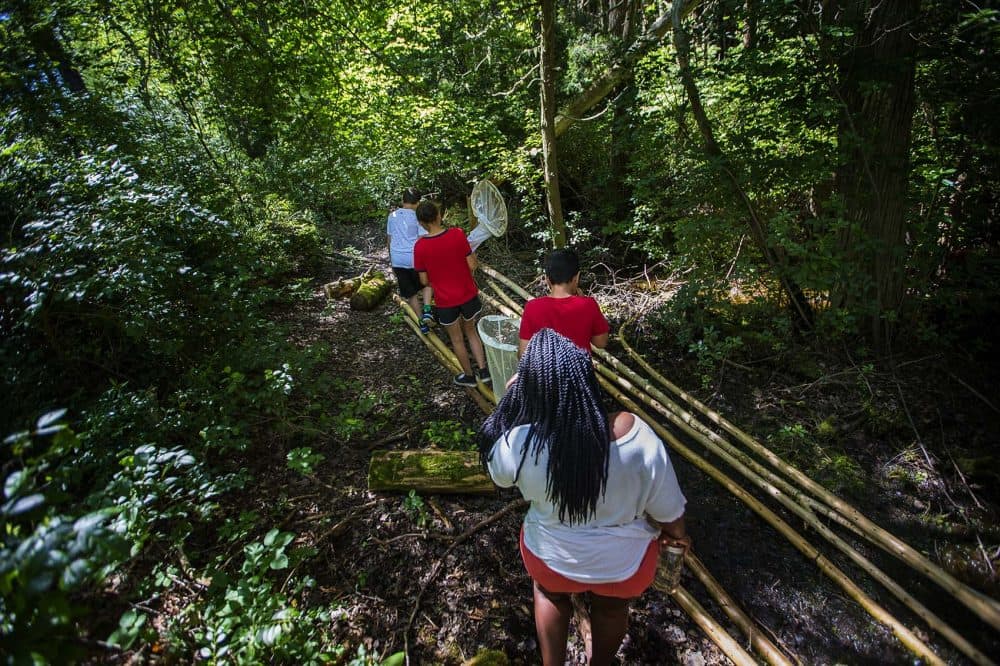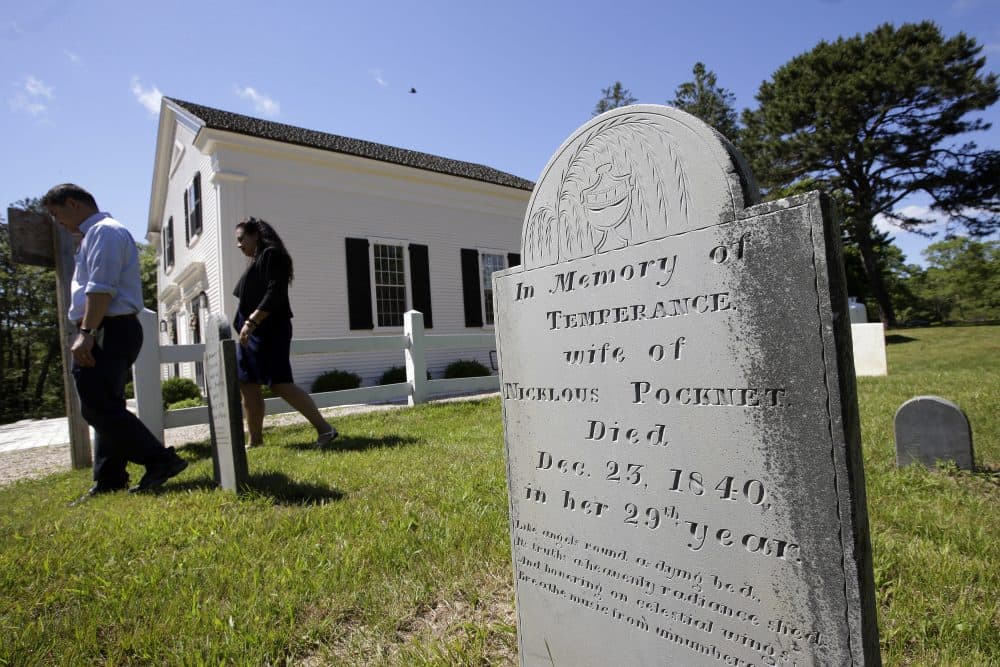Advertisement
What's At Stake In The Mashpee Wampanoag Tribal Land Bill

National legislation aimed at preserving the federal trust status of the Mashpee Wampanoag tribe’s land is expected to go to a vote before the full House this week.
It's a vote that was supposed to happen last week, before a tweet by President Donald Trump against the bill caused its sponsors to pull it from the House floor.
The bill’s lead sponsor, Massachusetts Rep. William Keating, says he's confident the legislation has enough votes to pass.
"We have a core of Republican support," said Keating in an interview with WBUR's Radio Boston. "It's a bipartisan bill. The sponsorship [includes] many of the most respected members [on] the Republican side of the aisle."
Having land held in trust by the federal government essentially gives a tribe autonomy to make decisions over how to tax, develop and manage a plot of land. The decision to take land into trust is typically made by the U.S. Department of the Interior, which had OK'd the trust status for the Mashpee land in 2015.
But last September, the Interior Department reversed its decision after a legal challenge brought by 25 residents of the city of Taunton, which is why a group of legislators have chosen to take the tribe's land into trust through legislation.
While the president's tweet last week calls direct attention to the tribe's plan for a $1 billion casino in Taunton, there are other factors at stake for the Mashpee Wampanoag.
If their land loses federal trust status, the tribe would likely have to shut down multiple establishments, like its police department, a natural resources agency and the beginnings of an affordable housing development. Officials say the tribe's language immersion school, Mukayuhsak Weekuw, would also be in limbo without the ability to operate on sovereign tribal land.
Advertisement

"The Mashpee Wampanoag have been working toward the return of our sovereign lands for nearly a half century," tribal Chairman Cedric Cromwell said in a statement responding to the president's tweet. "[The bill] is a deeply honorable legislative effort by both Republican and Democratic members of the House of Representatives to correct the significant wrongs that have been perpetrated against our Tribe over the years, and to ensure that our people have a chance to be self-sufficient."
The group of residents in Taunton who filed the successful lawsuit challenging the Mashpee Wampanoag tribe's land status say they have a lot to lose if the tribe is successful.
Attorney David Tennant says his clients are worried their community would lose its tranquility if the tribe was allowed to move forward with its casino plans.
"Having a 17-story-tall hotel going 24/7 and drawing hundreds of thousands of visitors a year, that would basically destroy any community in terms of having a quiet residential neighborhood," he said.
This isn't the first time Congress has stepped in with a bill to reaffirm a tribe's federal land trust status after a legal challenge. In 2014, Congress passed the Gun Lake Trust Land Reaffirmation Act, to preserve the trust status of the Gun Lake Tribe in Michigan. The constitutionality of that law was also challenged, but eventually upheld by the Supreme Court in 2018.
If the Mashpee Wampanoag Tribe Reservation Reaffirmation Act does pass the House, it still faces an uphill battle. Similar legislation has not been introduced to the Senate yet. And given President Trump's tweet, there are questions about whether he'd sign the bill into law.
This segment aired on May 15, 2019.
